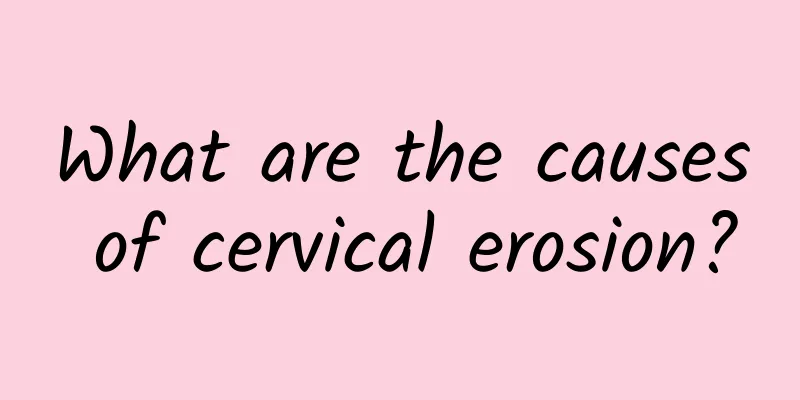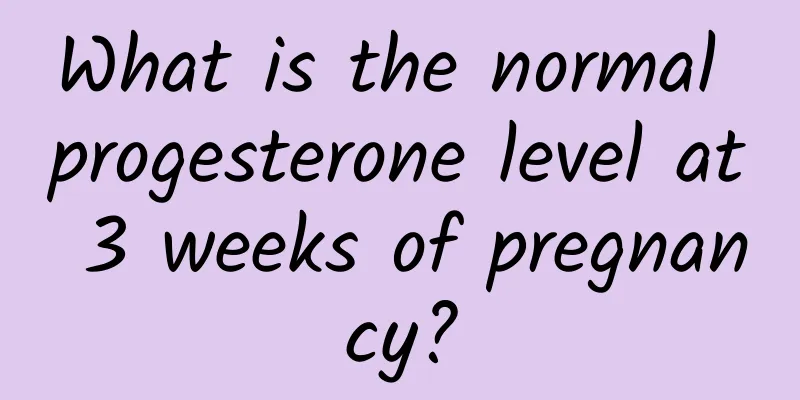How to treat irregular menstruation

|
Irregular menstruation is very common in our lives. The main clinical manifestations are abnormal menstrual cycles or bleeding. Although it does not have much impact on the patient's life, it also needs our attention. Severe irregular menstruation can cause amenorrhea, so we should pay attention to the treatment and conditioning of this disease. So what are the conditioning methods for irregular menstruation? Point 1: It is strictly forbidden to wash your hair during menstruation It is forbidden to wash your hair during menstruation, mainly because women's resistance is weak during menstruation and they are easily infected with colds. After the invention of modern hair dryers, you only need to blow dry your hair immediately after washing it, and wait until your hair is completely dry before going to bed. Supplement more vitamin C. The important role of vitamin C is to promote blood production and assist in the treatment of iron deficiency anemia. You can eat more high-protein foods such as beans and fish. Point 2: Keep warm during menstruation During menstruation, the body should be kept warm. Do not eat raw or cold food (including cold lettuce, watermelon, coconut juice, and food or cold drinks just taken out of the refrigerator), vinegar, or cold foods such as crabs and snails, so as not to cause sudden cessation of menstruation or excessive bleeding, and increased pain. Point 3: Do not lift heavy objects during menstruation Do not lift heavy objects or do strenuous exercise to avoid exerting force on the lower abdomen, which may cause excessive or prolonged menstrual bleeding. However, moderate and gentle exercise can relax muscles, promote blood circulation, prevent water retention, and promote the brain to secrete endorphins (a natural opium that makes the whole body feel comfortable). Point 4: Develop good living habits To prevent irregular menstruation, you should try not to smoke, drink alcohol or caffeine in your daily life. Alcohol can aggravate depression, headaches and fatigue, and trigger the urge to eat sweets; caffeine can promote breast tenderness, anxiety and irritability. Point 5: Eat more vegetables Vegetables contain a variety of nutrients. During menstruation, you should eat more vegetables rich in minerals and high in fiber, which can supplement vitamins and trace elements and promote gastrointestinal motility. For example: rapeseed, Chinese cabbage, cabbage, spinach, amaranth, celery, lotus root, mustard greens, green garlic, cauliflower, bell peppers, tomatoes, carrots, mushrooms, fresh mushrooms, etc. Irregular menstruation is a common gynecological disease. As female friends, we must pay attention to our health. There are many ways to relieve irregular menstruation. If you can pay more attention to the details of your life, this disease can be avoided. We must learn to prevent diseases. |
<<: Where is the best place for painless abortion
Recommend
Eating "these" good oils can expel bad oils and help stabilize the nervous system and cells!
Among the six major types of nutrients needed by ...
Thin legs this way! 6 super easy steps
Seeing that every Korean girl idol group has legs...
What should patients with Bartholinitis pay attention to?
The cause of Bartholinitis is mainly bacterial in...
How to tell if you have cervicitis
Cervicitis is a common gynecological disease with...
Why is the menstrual flow so heavy after a miscarriage? Doctors suggest that you should pay attention to 3 things after a miscarriage
Abnormal vaginal bleeding may occur after surgica...
What are the common types of vaginitis during pregnancy?
There are many types of common vaginitis during p...
Is vaginal candidal infection contagious?
Is candidal vaginitis contagious? Candidal vagini...
How to get rid of menopausal fat belly and middle-aged men’s beer belly? Study: Drinking soy milk every day can help you lose belly fat
"Lower belly fat" is a common wish of m...
What are the common harmful manifestations of cervical erosion
Gynecological diseases are very harmful to the hu...
To prevent pelvic inflammatory disease, you must beware of its causes
Among the diseases of women nowadays, pelvic infl...
What should I do if there is bleeding one month after abortion? Timely treatment
If bleeding occurs one month after an abortion, g...
Do you have to sweat profusely to lose weight? Famous doctor relies on low-impact "Niya exercise" to lose weight
"Why can't I lose weight even though I e...
What is the duration of pelvic inflammatory disease treatment?
The treatment time of pelvic inflammatory disease...
How to prevent irregular menstruation
It is very important for women to maintain good h...
Brief analysis of the clinical manifestations of cervicitis
As a common gynecological disease, many female fr...









